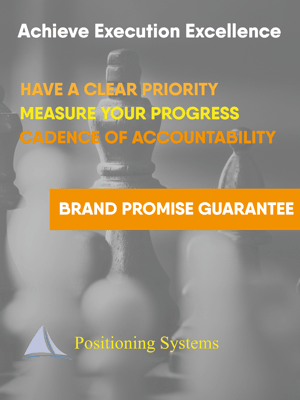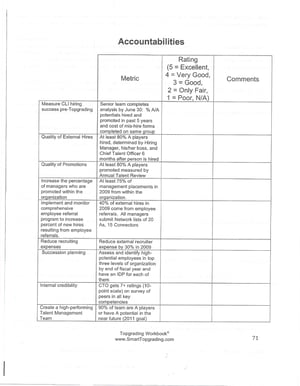 Start discussing role playing, and most people quickly feel an aversion to it.
Start discussing role playing, and most people quickly feel an aversion to it.
I hated it when I first started working as a salesperson.
In sales meetings, the sales manager would ask us to role play with another salesperson. He would set up a scenario, and it was my job to convince the other person to buy radio.
What happened?
The other person immediately turned into his worst every experience with a customer. He became obstinate, critical, skeptical, and total jerk.
In other words, not matter how powerful my reasoning, overcoming objections, emotional appeal, I was never going to sell him.
The whole idea of role-playing should be to help improve your skills, whether it’s to help you make a sale or to help you with a volatile customer who is upset with a mistake or poor service.
When you put a person against a pit bull, it’s difficult to develop them.
Make Role-Playing Productive
Role playing can be valuable for training, whether sales or customer service.
When I became sales manager in my radio, I wanted to improve the sales process, my salespeople’s sales skills, and naturally increase sales revenue.
It first meant building a sales process my staff would follow, and that worked.
In order to increase sales this system plus another to effectively train salespeople became my priority.
 We worked on developing a sales process as a team, to develop buy-in. Each team member developed a portion of the process. We shared this, then the team made suggestions on improvements. A couple weeks later we had a process we’d agreed on. We then rolled it.
We worked on developing a sales process as a team, to develop buy-in. Each team member developed a portion of the process. We shared this, then the team made suggestions on improvements. A couple weeks later we had a process we’d agreed on. We then rolled it.
That process provided specific points to measure, and to help focus on skill development. With 8-9 benchmarks to follow, each team member would measure their success rate on each benchmark. We could then discover where they needed improvement.
Instead of role playing with no script or intention, we now had a template to follow and discover where they could improve.
If they were failing to close effectively (50% rate is a good conversion rate on qualified customers) we would role play closing, to help them identify their strengths and weaknesses.
The role playing wasn’t pass fail, or to focus on embarrassing someone. It was in front their peers, with everyone rooting for them, trying to help them discover where they can improve and make a difference with their prospect.
Yes, we did have a script to follow. Yet the script was never intended to be followed verbatim. It was a guide to personalize and make their own. Many of them memorized what to say when an objection was raised.
Ben Franklin Close Example
I’d learned this from Tom Hopkins How to Master the Art of Selling Anything. As a salesperson I’d purchased his sales audio sessions, attending his sales training workshops to help sharpen my sales skills. Having a sales process greatly improved my mediocre sales ability.
I can still remember using the Benjamin Franklin close on customers and in sales training.
If you’re unfamiliar with the Ben Franklin close, watch this Zig Ziglar video on it.
The value for me came when I began to use this, but only after I’d made my own decisions using this technique.
Invariably, customers would interrupt when I’d start down this path. They’d laugh out loud and say, “Doug, you’re not going to trying using the Ben Franklin close on me, are you? You don’t really expect me to fall for this?”
.jpg?width=300&name=Ben%20Franklin%20(Pro%20-%20Con).jpg) Had I not already used it myself for my own decisions I wouldn’t have been able to say convincingly, “I understand your reluctance Mr. Customer! I recently started to use this technique in my personal life, and I’ve found it particularly helpful. Frankly I feel it’s helped me make some very good decisions lately. These decisions turned out very well for me. Why don’t we try it Mr. Customer and see what happens?”
Had I not already used it myself for my own decisions I wouldn’t have been able to say convincingly, “I understand your reluctance Mr. Customer! I recently started to use this technique in my personal life, and I’ve found it particularly helpful. Frankly I feel it’s helped me make some very good decisions lately. These decisions turned out very well for me. Why don’t we try it Mr. Customer and see what happens?”
Having shared I’d used this it to make my personal decisions, most were willing to explore it.
If you didn’t practice this in a role-playing situation, most would not have the courage to use it when the critical moment arrives a sales situation.
Role playing, when done correctly, provides the training to be comfortable saying things you wouldn’t have the courage or skill to say when you need it.
People development is one of the Four Decisions Scale Up coaches like Positioning Systems use to help our customers. Read this article by Google’s Eric Schmidt to discover how power comes from your people.
 Growth demands Strategic Discipline.
Growth demands Strategic Discipline.
To build an enduring great organization, requires disciplined people, disciplined thought, disciplined action, to produce superior results, and make a distinctive impact in the world.
Discipline sustains momentum, over a long period of time, laying the foundations for lasting endurance.
A winning habit starts with 3 Strategic Disciplines: Priority, Metrics and Meeting Rhythms. Forecasting, accountability, individual, and team performance improve dramatically.
Meeting Rhythms achieve a disciplined focus on performance metrics to drive growth.
Let Positioning Systems help your business achieve these outcomes on the Four most Important Decisions your business faces:
|
DECISION |
RESULT/OUTCOME |
|
PEOPLE |
|
|
STRATEGY |
|
|
EXECUTION |
|
|
CASH |
|
Positioning Systems helps mid-sized ($5M - $250M) business Scale-UP. We align your business to focus on Your One Thing! Contact dwick@positioningsystems.com to Scale Up your business! Take our Four Decisions Needs Assessment to discover how your business measures against other Scaled Up companies. We’ll contact you.
 NEXT BLOG – Before You Hire
NEXT BLOG – Before You Hire
What’s the first step when deciding to hire? If you don’t have a job summary scorecard for the position, it’s creating one. If you do, it’s time to review it. Why? We’ll share why next blog.






.jpeg?width=150&height=135&name=Hand%20with%20marker%20writing%20the%20question%20Whats%20Next_%20(1).jpeg)

